UK education system
-
🏅Model GCSE Essay on the Feud in Romeo and Juliet
If you’re teaching or studying Shakespeare’s ‘Romeo and Juliet’, you’ll know that essays about the family feud often hover around a Grade 4, 5 or 6—what examiners might call ‘middling’ or ‘competent’ responses. But with a few targeted improvements, these essays can be transformed into top-grade responses. I’ve updated one of my most popular blog posts to show exactly how to do this, paragraph by paragraph, with comments, grade 9 tips, and clear marking guidance for teachers and pupils alike. The key is to move beyond surface-level understanding and begin thinking like a literary analyst. That means really digging into Shakespeare’s language (AO2), showing a secure knowledge of the play and its themes (AO1), and crucially, thinking about why Shakespeare wrote what he did, and how his audience might have reacted (AO3). This is where the 5Ws strategy—Who, What, Where, When, Why—comes in. For example, instead of simply quoting the Prologue’s “ancient grudge” to describe the feud, a top-grade response will explore the word “ancient” in more depth. What does it suggest about tradition, time, and decay? What kind of audience would Shakespeare have been writing for, and why might he start with such a phrase? A Grade 9 student doesn’t just spot a quote—they zoom in on the language, explain the technique being used, and link it to Shakespeare’s bigger message about love, hate, and fate. I’ve used a visual symbol system in the new version of this post to make each part of the answer easier to teach and understand. A pencil icon stands for thoughtful analysis, a book and quill symbol represents literary and historical context, and a checkmark indicates where a pupil is showing Grade 8–9 thinking. I’ve also added a quiet but clear visual: a student figure at the centre of the learning, reminding us this is about developing real, mindful confidence—not just ticking boxes. This new breakdown works well for teachers modelling essays in class, for pupils revising independently, and for tutors looking for a clear teaching sequence. And if you’re looking for more structured support, I’d recommend my edition of the play, Romeo and Juliet: The Complete Play with Integrated Study Notes and Smart Translation—ideal for exploring language, structure and context in one place. For teachers, The Mindful English Teacher includes ideas for making literary analysis more inclusive, reflective, and emotionally aware. You can view the updated post and download the image resources now at francisgilbert.co.uk, or find the essay thread pinned to my socials. Let me know how you use it, and feel free to tag me with examples of Grade 9 insights from your own pupils!
-
Teaching 1984 in the surveillance culture of schools
Teaching Orwell’s “1984” as a set text in an examination-obsessed and heavily surveilled school system.
-
Brontë’s Wuthering Heights: The Study Guide Edition
Aimed specifically at pupils reading the book for exams. The complete text is punctuated by analysis and questions on every chapter with answers provided at the back. Essential reading for all students and teachers!
-
Mary Shelley’s Frankenstein: The Study Guide Edition
This edition of Shelley’s classic horror novel contains a comprehensive study guide, as well as extensive questions for students to help their understanding. Buy the paperback, and you get the e-book for free, so you can use the embedded web links.
-
Austen’s Pride and Prejudice: The Study Guide Edition
Aimed specifically at students and teachers reading the book as an exam text, with a detailed introduction that outlines the historical context of the novel, the ways in which it was influenced by the other genres/writers and how it is structured.
-
Analysis and Study Guide: Dr Jekyll & Mr Hyde
This brilliant edition of Stevenson’s novel may be the answer to your prayers. Written by an experienced teacher and best-selling author, this version is aimed at students who must analyse the text in depth or teachers wanting to deliver outstanding lessons on it.
-
My blogs, YouTube, Soundcloud and Twitter channels…
Together with a number of other eminent journalists and educationalists, I co-founded and help run the popular educational blog, Local Schools Network. I also blog for Mumsnet on Tales Behind The Classroom Door. My YouTube channel is Wonderfrancis. My Soundcloud Channel is Electric Schubert. I am @wonderfrancis on Twitter. Other blogs: A Streetcar Named Desire for […]
-
Good links for Wilfred Owen’s poetry
http://www.bbc.co.uk/history/worldwars/wwone/wilfred_owen_gallery.shtml http://www.bbc.co.uk/shropshire/content/articles/2005/03/16/wilfred_owen.shtml
-
Proof that GCSE are more rigorous than O Levels?
I spent an interesting morning at Television Centre today, appearing on Broadcasting House, the Sunday morning magazine show hosted by the affable Paddy O’Connell. Taking a light-hearted look at the current O Level and GCSE debate, he sat an English O Level question and a GCSE one; they were both ‘writing’ or composition questions. As a […]
-
Academics and teachers, have you met?
Reform would be smoother and more effective if you worked together, says Francis Gilbert Earlier this month, education secretary Michael Gove said that top academics should reform our A-level system, implying that only the elite Russell Group universities can stop the chronic “dumbing down” going on in our sixth forms. His announcement was on top […]
-
My YouTube videos which explain Wilfred Owen’s Exposure and Spring Offensive
A blog post containing various videos I made some time ago explaining Wilfred Owen’s poem ‘Exposure’ to my pupils in secondary school, studying it for GCSE.
-
Wilfred Owen’s poetry — a Prezi with links to YouTube explanations of the poems
Wilfred Owen’s poetry and life on Prezi
-
Louisa Young on her novel about the First World War.
Louisa Young is the author of the powerful novel, My Dear, I Wanted To Tell You, which is about a soldier who is horribly disfigured during the First World War. This is the video that the publishers made about the book: This is her explanation of how she came to write the book:
-
The Machine Gunners — Teaching Activities, links and videos
http://www.youtube.com/watch?v=qaul5qhenY0 BBC Schools Radio has produced an excellent scheme of work on The Machine Gunners, which can be accessed here.
-
Dream of a lost friend by Carol Ann Duffy
Dream of a lost friend
-
Using personal experience to improve your writing
Using personal experience to improve on Prezi

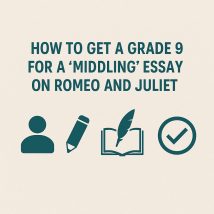

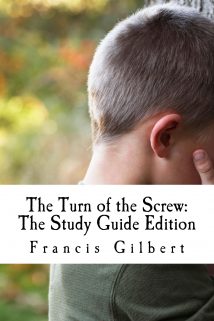

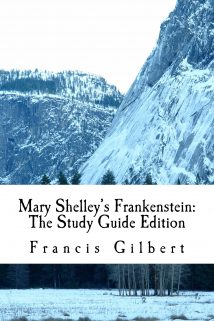
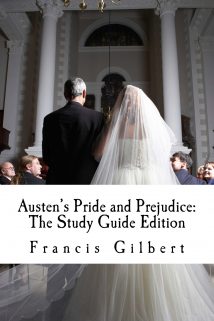
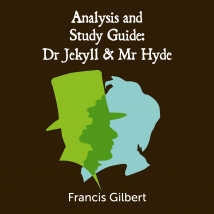

The government is wrong to devalue vocational qualifications
Vocational courses help students develop key skills employers are crying out for. League tables should reflect this The government’s decision to drastically downgrade the value of vocational qualificationsis deeply troubling for teachers like me, and must be sending many schools and colleges into a tailspin of despair. At the moment over half a million teenagers are […]